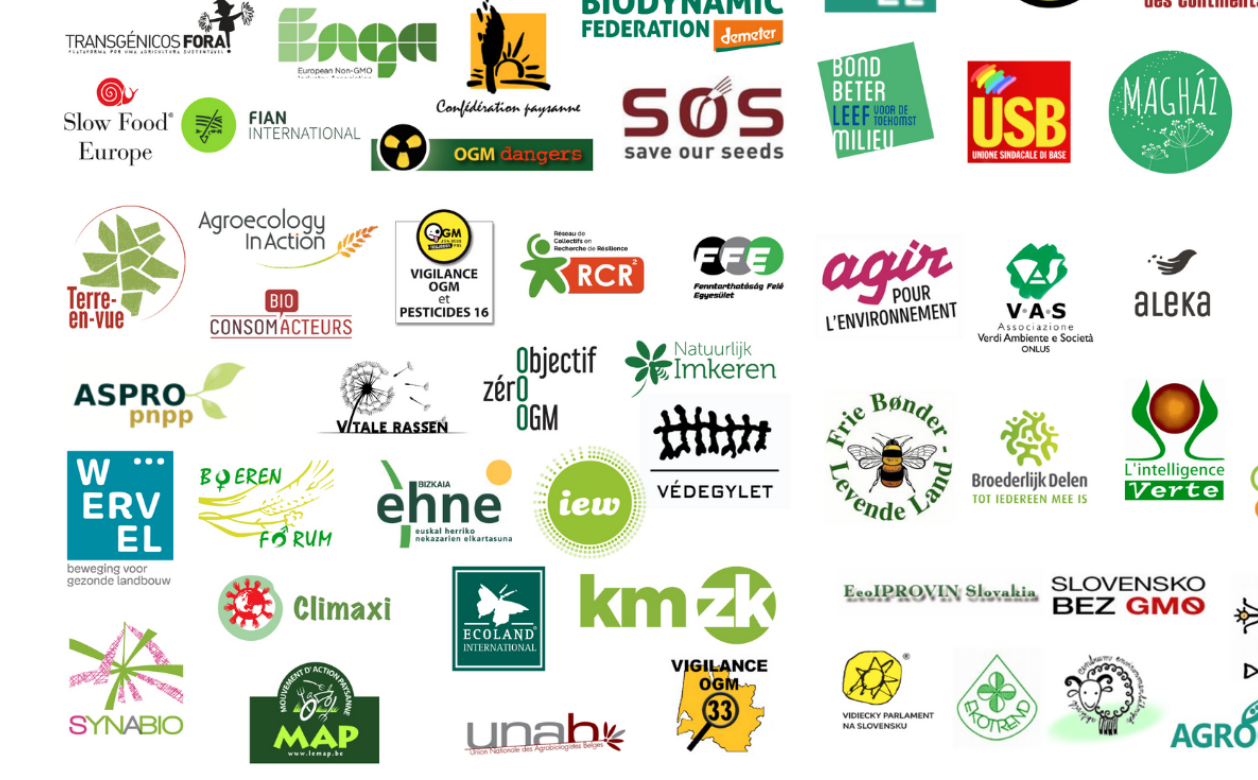European Commissioner for Health and Food Safety Stella Kyriakides, European Commissioner for the Environment Virginijus Sinkevičius, European Commissioner for Agriculture Janusz Wojciechowski,
Dear Members of the European Parliament,
Dear Representatives of the Member States to the European Union,
As peasants’, environmental and civil society organisations, we would like to once again raise our concerns about the European Commission’s initiative on new techniques of genetic modification, which aims to deregulate certain GMOs. As a reminder, this initiative follows a 2019 request from the Council of the European Union asking the European Commission to produce a study on the status of new genomic techniques in light of the July 2018 ruling of the Court of Justice of the European Union (CJEU) , which confirmed that organisms derived from new mutagenesis techniques are GMOs and must be regulated as such. The Commission has stated its intention to conclude this initiative in the second quarter of 2023, either with a proposal to amend the current regulation or to maintain it.
With this open letter, we would like to draw your attention to a key point in the context of this initiative: on 8 November 2021, the French Council of State referred two new questions on GMOs to the CJEU . This referral follows the inception impact assessment published on 24 September by the European Commission, which considers that Directive 2001/18 is “no longer fit for purpose” due to several reasons including “legal uncertainties” resulting from the lack of a clear definition of the terms “mutagenesis”, “conventionally used in a number of applications” and “long safety record”.
In this referral, the French Council of State has called on the CJEU to clarify these definitions. It has raised the following two questions:
(1)
Is Article 3(1) of Directive 2001/18/EC of the European Parliament and of the Council of 12 March 2001 on the deliberate release into the environment of genetically modified organisms and repealing Council Directive 90/220/EEC, read in conjunction with point 1 of Annex I B to that directive and in the light of recital 17 of the Directive, to be interpreted as meaning that, in order to distinguish from amongst techniques/methods of mutagenesis those techniques/methods which have conventionally been used in a number of applications and have a long safety record, within the meaning of the judgement of the Court of Justice of 25 July 2018, consideration need be given only to the methods by which the mutageneous agent modifies the genetic material of the organism, or must account be taken of all the variations in the organism induced by the process used, including somaclonal variations, which may affect human health and the environment?
Is Article 3(1) of Directive 2001/18/EC of 12 March 2001, read in conjunction with point 1 of Annex I B to that directive and in the light of recital 17 of the Directive, to be interpreted as meaning that, in order to determine whether a technique/method of mutagenesis has conventionally been used in a number of applications and has a long safety record, within the meaning of the judgement of the Court of Justice of 25 July 2018, account need be taken only of open field cultivation of the organisms obtained using that method/technique, or may account also be taken of
(2)
1 Ruling of the Court of Justice of the European Union, 25 July 2018, case C 528/16.
2 [2] Summary of the request for a preliminary ruling pursuant to Article 98(1) of the Rules of Procedure of the Court of Justice, Case C-688/21 : https://curia.europa.eu/juris/showPdf.jsf?text=&docid=251481&pageIndex=0&doclang=EN&mode=lst&dir=&occ=first&par t=1&cid=271966
research work and publications that do not relate to such cultivation and, in relation to that work and those publications, is consideration to be given only to work and publications relating to risks for human health or the environment?
These questions not only concern a French case, nor the sole application of Directive 2001/18, but also the fundamental principles of EU law, such as the precautionary principle, on which EU food and environmental law is based, including EU law on the release of genetically modified organisms into the environment and onto consumers’ plates. Indeed, several key questions arise: does the European regulation concern only the genetic modifications claimed by companies, as recommended by American law, which considers that the modified plant would be, apart from this claimed modification, “equivalent in substance” to plants resulting from traditional breeding processes? Or does it cover the entire genetically modified plant, including the many other genetic, epigenetic, proteomic, alterations, so on and so forth, which result from the genetic modification process used, and may present risks to health, the environment and agricultural systems, and represent an uncertainty for all operators, from peasant to consumer, including the retailer? Can the risks resulting from the release of GM plants into the environment be solely assessed in the laboratory, or should they be assessed in the natural environment in which they are to be
3 released,outinactualfieldconditions, andwithrealfoodtrials?
The CJEU is about to rule on how the EU Treaty’s precautionary principle is to be interpreted with regards to GMOs. If the European Commission preempts the CJEU, i.e., presents its proposal before the ruling, it risks drawing up a proposal that is inconsistent with the EU Treaty. Therefore, heeding the separation of powers, the Commission must incorporate the CJEU’s findings in its proposal placed on the Commission’s agenda in 2023 – if it still deems that proposal necessary. It cannot rush out a proposal without incorporating these important elements, based on incomplete information.
In consequence, the undersigned European peasants’ and civil society organisations call on the European Commission to suspend the agenda of the legal initiative to amend EU GMO law launched on 29 April until the publication of the CJEU’s answers.


